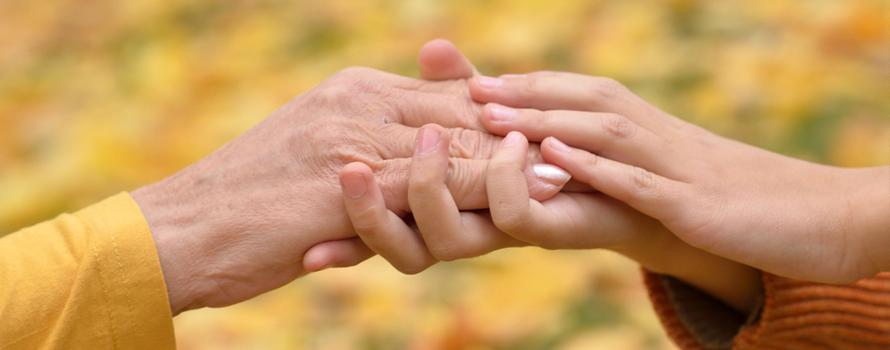As the onset of rheumatoid arthritis frequently occurs in middle age and may become more severe over time, some people with RA may eventually need a high level of assistance from others as they get older.
Thousands of Irish family carers are providing help and support to their elderly partner, relative, friend or neighbour with severe rheumatoid arthritis. In many cases, the person would be unable to live independently without this help.
Depending on the severity of their disease, people with rheumatoid arthritis may need assistance in a number of areas. These can include:
- Help with everyday tasks such as shopping, cooking, cleaning, opening jars and tins and various home maintenance tasks
- Assistance with washing, dressing etc.
- Collecting prescriptions from the pharmacy and making sure that medications are taken
- Accompanying relatives on public transport or driving them to various places, including hospital appointments
- Arranging for appropriate adaptations to the house and organising useful aids and appliances
- Encouraging your relative to remain active and to follow advice on mobility exercises
Being a friend and motivator can often be the most difficult task. This may involve actively encouraging your relative to self-manage their condition by eating well, exercising and remaining active. Striking a good balance between helping out and motivating a relative to help themselves, can be tricky.
The emotional impact
Caring for an elderly person who has rheumatoid arthritis can be difficult and exhausting. In some circumstances if there is no break, it can lead to feelings of resentment, depression and frustration.
These emotions are not helpful in maintaining good relationships between you and the person you are caring for. But you have to keep in mind always that it is often more difficult being the person being cared for. They will probably be feeling guilty, hopeless and may have lost a lot of self-esteem as there RA has worsened. These feelings, along with the pain of chronic rheumatoid arthritis, can lead to severe depression for some.
It is important to remember that when you are a carer, you are in fact caring for two people. You should therefore try and look after your own mental and physical health as well. If you are happy mentally and physically well, it may help your partner/parent or loved one feel better.
Caring for the carer
Being a carer is a very demanding role and can create many stresses. You need to carry on your own life as well. Respite care is short-term care that helps you take a break from the daily routine and stress. It is worth investigating if this service is available in your area.
A good diet and exercise is just as important for you as your relative with RA. Regular moderate exercise can help you keep your energy levels up. Tiredness only adds to the stresses of caring for someone. For many carers, talking to someone in a similar situation, another carer for example, can help. Sharing your experiences can ease the burden. You can talk to another carer through the Carers Association of Ireland.
Getting support
Carers may feel isolated. There are, however, a number of useful services in Ireland that can help you with support and advice.
Arthritis Ireland’s LoCall helpline (1890 252 846) is a confidential service which is open to anyone affected by arthritis. It provides emotional and practical support and information by phone, by letter and by email to people with arthritis and their family and friends. Many people who are carers for people with arthritis contact this helpline for support, advice and information. It is open from Monday – Friday from 10am – 4pm .
The Carer’s Association of Ireland (www.carersireland.com) provides family carers with emotional and practical supports. There are 16 resource centres nationwide. At these centres, you can pick up a Carer’s Information Pack or talk to someone who can help. The National CareLine provides a free phone service for carers in the home (1800 24 07 24).
The Carer’s Association also offers a Home Respite Service. This home-based service provides flexible and practical support to family carers if you need to take a break. Carers can contact the association directly.
You can contact your local HSE office to organise for an occupational therapist to carry out an assessment of your home environment. Visit the Citizens Information Board website for more information (www.citizensinformation.ie).
There is an extensive range of equipment and adaptations that can help people with rheumatoid arthritis stay more independent. Health professionals can advise on these.
Other community-based services that might be available to you include access to public health nurse visits, physiotherapy, podiatry, psychological services, and social workers.
For more information on caring for an older person, visit the Age Action websitewww.ageaction.ie or Friends of the Elderly (www.friendsoftheelderly.ie).
Financial help
As a carer, you may also be able to receive financial help. Don’t be reluctant to ask. Find out if you qualify for PRSI Contributions for Carer’s Benefit and Carer’s Allowance by contacting your local social welfare office www.welfare.ie.
If you have had to take time of from work, investigate whether you are entitled to carer’s leave by contacting the Department of Enterprise Trade and Employment (www.entemp.ie).




